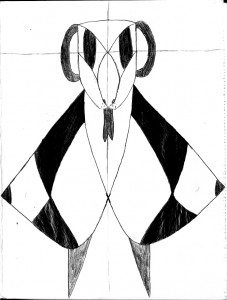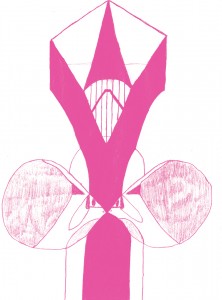EDITOR’S NOTE: In Response is a new-ish column that directly responds to another piece of writing or broadcasting. The following interview with Sofar Vancouver’s Catherine Hodgson is in response to “A New Guest at Your House Show: The Middleman” by Emma Silvers, published to KQED Arts April 28, 2017.
In Emma Silvers’ article, Sofar Sounds is revealed to be a multinational $22-million company that hosts exclusive house shows in 350 cities around the world, profiting off musicians that don’t see even a sliver of that wealth, and actively perpetuating the idea that getting paid in “exposure” is adequate compensation. What the article fails to reveal is that only a fraction of the cities that host Sofar shows operate under that model, and most are actively trying to undo those harmful frameworks.
Only eight Sofar cities, including San Francisco — about which the article was written — have paid employees. Sofar Vancouver and the other 341 cities are entirely volunteer run, with Vancouver’s team hosting 1-2 shows per month. While technically under the umbrella of Sofar Global, the team in Vancouver is largely independent from the organization, and operates with little guidance from its global namesake, aside from occasional check-ins from Sofar’s Global Community Manager, Chris Winfield-Gryt.
“What surprised me about the article was the lack of communication that it sounds like other cities are having with their artists,” says Catherine Hodgson, director of Vancouver’s Sofar Sounds chapter. “I felt so bummed out because that’s been something I’ve worked so hard on here.” Sitting down with Discorder, Hodgson breaks down the realities of the Sofar model in Vancouver, both economically and ideologically.
The financial breakdown of a Sofar show is just about the most sour note within Silvers’ article, because it shows the organization to be so unabashedly exploitative of the musicians upon which it depends. Silvers calculates that at a particular San Francisco show, Sofar took in approximately “$1,500 — thirty times more than each band’s pay.” While those figures are abhorrent, there are stark differences between the finances of Sofar in San Francisco and Vancouver.

First, Sofar Vancouver tickets are still pay-what-you-want, with a suggested donation of $10, and no one turned away for lack of funds. From what is collected at the door, “money is taken off the top for expenses specific to that show,” Hodgson says — things like audio equipment rentals, compensation for artists’ transportation, and $50 for the audio person.
“From there, we split the money 70-30 — 70 per cent goes to the artists, 30 per cent to our Sofar bank account, which goes towards our running costs in Vancouver, like banking fees, Google storage, lights,” she explains. “It’s an average of $30-$60 that we keep at any given show.” The remaining 70 per cent is divided evenly between the three acts. They are then given a choice between their cut or a professional live video of their performance, in which case their money goes to the video and video editors.
While it’s not the highest paying gig, for the artists and those who put on the show, Sofar Vancouver makes a deliberate effort not to keep anyone in the dark over their finances, let alone profit at the expense of artists. Hodgson says that around “one artist every four months chooses the money over the video.” For most artists, the value of getting a professionally-made live video exceeds what their share of the door would be. “I try really hard to be open and transparent about what Sofar is, and what the options are for them,” she explains. “They are in control of saying yes or no, right off the bat. We give them all the details up front, so they can decide what’s best for them.”
The main source of revenue for Sofar Global is not from shows, apparently — it’s from Youtube ad revenue. “That’s always been the way they see profit,” says Hodgson. The videos produced from all the shows across the globe are uploaded to Sofar Sounds’ Youtube channel. And because they are all combined together, that money isn’t filtered back to the cities that produce the videos, let alone the artists performing in them.

Hodgson acknowledges that there is a need for improvement within the Sofar model. “In terms of business, it’s still really young — it only started in 2009,” she says. “The way I see it, they were making videos and putting them up, just riding that wave for so long. But now, it’s this gargantuan thing, and I don’t think they even know where it’s going. They have to take a serious look at how to keep it sustainable and transparent.” The disconnect between Sofar Global and many of its cities across the world, including Vancouver, is apparent — those who are producing the vast majority of the content through which Sofar makes its money don’t see it returned.
While one might think of breaking away from the Sofar name and all the controversy surrounding it, Sofar Vancouver is still hesitant. Despite their independence, Sofar Vancouver is inherently connected to groups of likeminded people all over the world through the brand. “That, to me, is the main thing I’m holding on to,” says Hodgson. By cutting ties with the name, they would be distancing themselves from a vast network of valuable contacts, that they often call on to help local artists plan tours abroad.
Hodgson still believes that “Sofar can viably be a for-profit company as long as we’re giving that profit back to the people that deserve it and make it happen.” That means paying artists who perform in living rooms across the world; that means compensating the thousands of volunteers putting in countless hours of work to make these shows happen; that means calling out the inequity within the company wherever it springs up; that means maintaining communication and dialogue between every level of the organization. Hodgson says, “I’m constantly sending Sofar Global emails with my thoughts on how it can work better and be more sustainable for everyone involved.”
x
You can learn more about Sofar Sounds Vancouver by visiting sofarsounds.com/vancouver. For Emma Silvers’ “A New Guest at Your House Show: The Middleman,” kqed.org.


